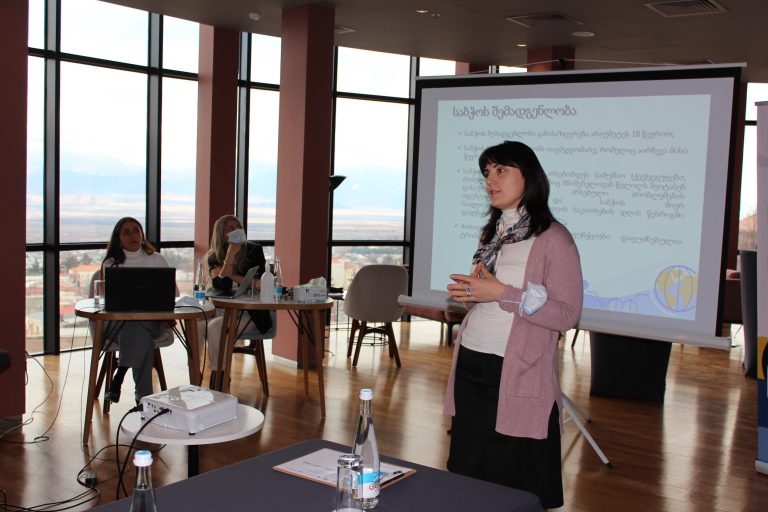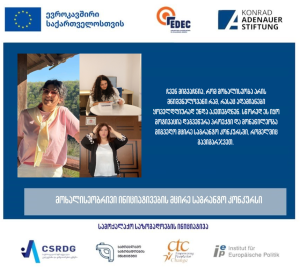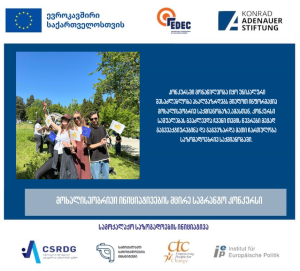On January 28, the Telavi Education Development and Employment Center (TEDEC) together with the Education Development and Employment Center (EDEC) held a round table discussion about the development of employment support services in Telavi. The meeting was held within the framework of the EU-funded project “Learn for Employment”.
The meeting aimed to present the model of regional councils which will encourage the promotion of employment support services and social dialogue in the Kakheti region.
The meeting was attended by the representatives of the Administration of the State Representative in the Kakheti Region, Akhmeta, Gurjaani, Dedoplistskaro, Telavi, Lagodekhi, Sagarejo, Sighnaghi and Kvareli Municipalities, the State Employment Support Agency, the Georgian Chamber of Commerce and Industry, the Kakheti Center for Regional Development, the Academy of International Education “BDC” and the college “Aisi”.
Lika Kiladze, the Chairman of the Board of EDEC and the Manager of the “Learn for Employment” Project opened the meeting and introduced the goals of the round table to the participants, and presented the model of regional councils for promoting social dialogue. Natia Karchaidze, the Director of TEDEC talked about the results achieved in the Kakheti region and future plans, after which a discussion was held.
The EU-funded project “Learn, Exercise, Achieve, Receive, Network for Employment! (LEARN for Employment!)“ is implemented by the Education Development and Employment Center (EDEC), the Telavi Education Development and Employment Center (TEDEC), the Employment Agency of the Autonomous Region of Adjara (EAARA), Abkhazintercont (AIC) and the Institute for Change and Innovation (ICI).
The project implemented in six regions of Georgia – Imereti, Guria, Racha-Lechkhumi, Adjara, Shida Kartli, and Kakheti – aims to promote an efficient transition model from education to the labor market largely supporting increased employment, social integration, and decreased poverty and vulnerability levels.




